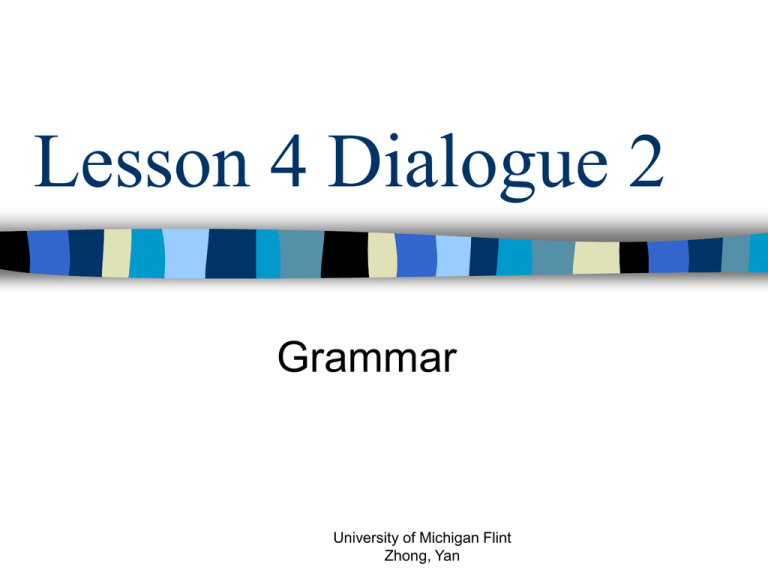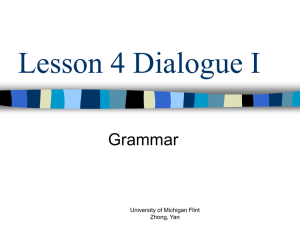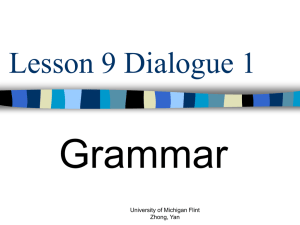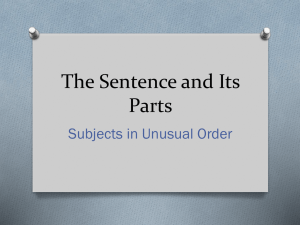Chapter 4 Dialogue 2
advertisement

Lesson 4 Dialogue 2 Grammar University of Michigan Flint Zhong, Yan The Modal Verb 想 (xiǎng, want to; would like to) 想(xiǎng) has several meanings. In this lesson it is a modal verb indicating a desire to do something. It must be followed by a verb or a clause. Would you like to listen to some music? 你想听音乐吗? Nǐ xiǎng tīng yīnyuè ma? Teacher Bai felt like playing ball, but Teacher Wang didn’t. 白老师想打球,可是 王老师不想打。 Bái lǎoshī xiǎng dǎ qiú, kěshì Wáng lǎoshī bù xiǎng dǎ. Do you feel like going to see a Chinese movie? 你想不想看中国电影? Nǐ xiǎng bu xiǎng kàn Zhōngguó diànyǐng? Do you feel like listening to some foreign music? 你想不想听外国音乐? Nǐ xiǎng bu xiǎng tīng wàiguó yīnyuè? 想 (xiǎng) vs. 喜欢 (xǐhuan) 想 (xiǎng) can be translated as “would like to,” “to have a desire to.” 喜欢 (xǐhuan) is “to like,” meaning “be fond of.” 想 (xiǎng) and 喜欢 (xǐhuan) are different, and are not interchangeable. 想 (xiǎng) vs. 觉得 (juéde) Both 想 (xiǎng) and 觉得 (juéde) can be translated as “to think” but 想 (xiǎng) means “to desire,” whereas 觉得 (juéde) means “to feel,” “to have the opinion,” or “to give a comment.” Verb+Object as a Detachable Compound 睡觉 (shuì jiào, to sleep), 唱歌 (chàng gē, to sing), 跳舞 (tiào wǔ, to dance) Even though they are treated each as a word, grammatically speaking, they are all verb-object compounds. detachable compound does not take an object. When there is an attributive element to modify the object, such as an adjective or a number-measure word combination, it must be inserted between the verb and the noun. Such a compound is called a “detachable compound.” 睡觉 (shuì jiào, to sleep) 唱歌 (chàng gē, to sing) 跳舞 (tiào wǔ, to dance) → 睡一个好觉 (shuì yí gehǎo jiào, have a good sleep) → 唱英文歌 (chàng Yīngwén gē, sing an English song) → 跳中国舞 (tiào Zhōngguó wǔ, a Chinese dance) do 谢谢 再见 University of Michigan Flint Zhong, Yan










